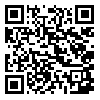Volume 68, Issue 2 (5 2010)
Tehran Univ Med J 2010, 68(2): 80-86 |
Back to browse issues page
Download citation:
BibTeX | RIS | EndNote | Medlars | ProCite | Reference Manager | RefWorks
Send citation to:



BibTeX | RIS | EndNote | Medlars | ProCite | Reference Manager | RefWorks
Send citation to:
K D, B M, M M, J H. In-vitro anti fungal activity of Propolis alcoholic extract on Candida spp. and Aspergillus spp.. Tehran Univ Med J 2010; 68 (2) :80-86
URL: http://tumj.tums.ac.ir/article-1-368-en.html
URL: http://tumj.tums.ac.ir/article-1-368-en.html
1- , kambiz37diba@gmail.com
Abstract: (8176 Views)
Background: Several studies have shown that propolis has antibacterial, antifungal,antiviral and antiparasitic activity. Furthermore propolis has been described to have medicinal usages in some fungal infections like Candidiasis. Our aim is to study the inhibitory effects of alcoholic extract of propolis on Candida spp. and Aspergillus spp.Methods: To determine inhibitory and fatality dose of propolis extract, we prepared serial dilution of the extract including 1/20, 1/40, 1/80, 1/160, 1/320 and 1/640 in 1 ml of liquid medium sabouraud broth. Given numbers of Candida yeasts in 1ml were added to above dilution tubes. Candida and Aspergillus cultures were incubated at 30°C and 25°C respectively for 24-72 hours.Results: We obseved that the concentration of 0.25 g/dl of propolis extract showed an
inhibitory and killing effect on more than 50% of the isolates. But there were no inhibitory and killing by the concentrations 0.0312 g/dl and 0.0625 g/dl on Candida
isolates. Our findings showed that 0.0312 g/dl of the extract was partially active on Aspergillus fumigatus and dilution of 0.125 g/dl was active on Aspergillus. niger. In the agar dilution method, some changes were observed on morphological features (depends on the extract dilution) as well as quantitative effects of dilution of extract on the colonies.Conclusion: We found that the alcoholic extract of propolis had a prominent antifungal activity and inhibitory effect on Candida and Aspergillus isolates.
Send email to the article author
| Rights and permissions | |
 |
This work is licensed under a Creative Commons Attribution-NonCommercial 4.0 International License. |





